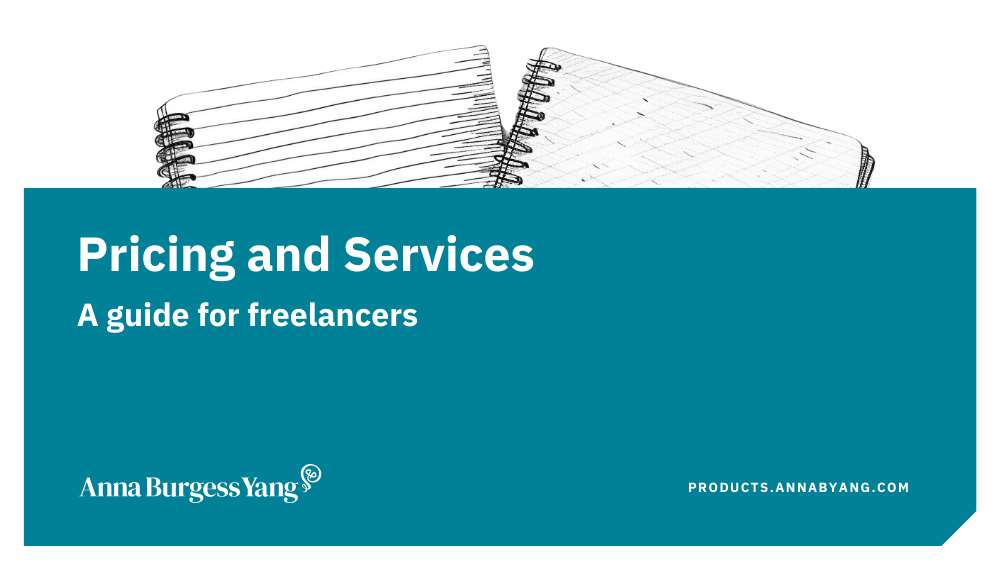Work Fewer Hours and a Shorter Week as a Solopreneur
Reclaim your time by shortening your workweek.

A solo business is alluring: you can set your own schedule and have a ton of freedom. Yet many solo business owners end up working more hours, far more than they'd work in a traditional 9-5 job. They're not sure how to cut back, work more efficiently, or say "no" to clients.
One of my main goals for my solo business has always been to condense my work into as few hours as possible. By doing this, I have time to pursue personal interests or hang out with my family. I also knew, when I first launched a freelance writing business, that writing all day, every day would burn me out so I intentionally created a schedule to avoid that. Today, I only do client work a few hours per day and have one day per week set aside for no client work.
I share this because I want other solopreneurs to know it's possible. You can set the boundaries and design a schedule that minimizes your working hours, giving you more flexibility.
What does working fewer hours as a solopreneur look like IRL?
Working fewer hours means intentionally designing your schedule to condense client work into fewer days or hours per week while maintaining (or increasing) your income.
To do this, you have to set clear boundaries, use your time efficiently, and price your services to support a shorter schedule rather than maximizing billable hours or client projects.
The shorter workweek framework: 5 steps
According to DemandSage, the average full-time freelancer works 43 hours per week. That's not terrible, compared to a 9-5 job, but many solopreneurs want to work less than they did in corporate life, not the same.
Here are some strategies for solopreneurs, freelancers, and solo business owners who want to reclaim their time without sacrificing income.
1. Create structure around your work
9-5 life has some parameters around working hours (at least, in theory). You have an expected start and stop time. As a solopreneur, you can embrace non-traditional hours, but this can quickly derail into working all hours. There's no boss or team to keep your working hours confined.
One of the first things you can do to reduce your working hours is to set defined working hours. At my last corporate job, the company had a 4-day workweek, and it was glorious. I got so used to not working on Fridays that I couldn't imagine going back when I became self-employed. Fridays are my day, to go grocery shopping or work on my own projects.
You should also set working hours each day: what time do you expect to begin and end work? My working day mostly ends by 4:00 pm. If life happens and I don't get everything done, I'll extend my work into the evening, but it's never planned that way. I also work in blocks of time, with the first block from about 9:00 to 11:00 am and another block from 1:00 to 4:00 pm (and a giant break for lunch and a nap in the middle).
The more I stick to this schedule, the less willing I am to work outside of these blocks of time. I use time blocking to plan out what I'm going to do during these blocks of time, such as client work or something else related to my business.
While I stick to a mostly "normal working hours" schedule, you should follow a schedule that matches the time of day that you work best. In addition to my client work, I write in this blog, run a publication, and I have other creative projects I enjoy. While this writing is outside of my client work, I still preserve a block of time in my day. I naturally wake up early, so the first thing I do is write.
If you feel more energized early in the morning or late at night, follow your body's rhythm. Do your important work when you're most productive, and set different start/stop times for yourself based on those working hours.

2. Experiment with a shorter workweek
Let's say you start by defining specific working hours, but still find that you work close to 40 hours per week and want to work less.
One of the first things you should do is commit to an activity that takes place during your working hours. Go to the gym or a yoga class. Run errands every Friday morning. Volunteer. Do something that disrupts your defined working hours — but don't lengthen your workday. You'll quickly figure out how to adjust by the 2-hour reduction in your day (or whatever amount of time it takes to do the activity). Suddenly, your 40-hour workweek has turned into a 38-hour workweek.
The reason this works so well is that you're doing something. If you try simply starting your day later or ending earlier, you might be tempted to "cheat" if you have a busy day. But if it's an activity you've signed up for or are looking forward to, you're less likely to skip.
You'll find that you enjoy taking time out of your day to do something for yourself, and you won't want to give it up. As you continue to shorten your workday and workweek, you'll look for ways to work more efficiently (such as using tools and automation) or otherwise save time.
3. Set boundaries with your clients
Years ago, a fellow freelance writer published some suggestions for "going above and beyond" to make yourself indispensable to clients.
I think that's terrible advice. Your time is literally money, and if you go above and beyond, you're donating your free time to clients. It's a quick path to overwork. Complete your best work, within the scope of the project, and nothing more.
If you don't have good contracts in place, make that a priority. Make sure the agreement clearly outlines the scope of what you'll do (and, in some cases, what you won't do). If clients ask you to do something additional, you can point back to the agreement and say, "This wasn't included, but I'm happy to do that for $XX additional dollars and it will take YY amount of additional time." Don't rush to complete the work in the same timeframe, or you'll break your shorter workweek boundaries.
Use a scheduling app (like Calendly or TidyCal) to put additional guardrails around your work. Because I work in blocks of time, I can't have a ton of interruptions. My Calendly link reflects the times that work best for me, rather allowing people to schedule any time I'm technically "available."
You should also set boundaries around your response time, so that you don't feel pressure to respond to clients immediately or outside of your working hours. My email signature says:
"I work asynchronously, so my working hours may not be the same as yours. Please do not respond outside of your working hours, and I'll do the same."
4. Benefit from buffer time
If your schedule is full to the brim with client work (or you're overbooked), it's hard to adjust when something comes up, which it invariably will. You can have the best project management system in the world, and something might still take longer than you thought. Or you get sick or have an emergency come up in your life.
With shorter weeks, you're not thrown off as much by the unexpected. While I try really hard not to work on Fridays, it's also my "catch-up" day if something happens throughout the week that throws off my schedule. At the same time, I really enjoy not working on Fridays — so that prevents me from abusing my own system. I try not to let work spill into Fridays, but if it does, it keeps me from falling behind.
5. Price your work accordingly
Of course, working a shorter week is only possible if your pricing supports it. The first things you should examine are efficient use of your time, preventing scope creep, and setting boundaries with clients. If you're already doing all of those things and still feel like you can't work less, consider your pricing. Can you raise your rates a bit with your existing clients — or at least raise rates with any new clients? Higher rates allow you to work less and still earn the same amount.
If you're currently charging clients by the hour, shift to project-based pricing. People with more experience can work faster, but that doesn't mean the output is worth less to the client. Start by charging exactly the same as you do now, but as a flat rate instead of an hourly rate.
Finally, keep in mind that people working in the corporate world routinely get annual raises or cost of living adjustments. Personally, I'm not a fan of raising rates with existing clients, but I routinely increase the rates I present to new clients. You're worth more with additional experience and a better portfolio, and your pricing should reflect that.
Your shorter workweek checklist ✅
- Define your ideal working hours and days
- Sign up for one recurring activity during traditional work hours
- Update your Calendly/scheduling tool to reflect your boundaries
- Add an email signature noting your asynchronous work style
- Review existing contracts for scope creep protection
- Calculate if your current pricing supports fewer hours
- Block out one full day per week as your non-client day
- Set up time blocking for your remaining work days
Design a schedule that works for you
One of the best parts of running a solo business is having the freedom to design your own schedule. You don't need to default to a traditional 40-hour workweek just because that's what everyone else does (including other solopreneurs).
Working fewer hours doesn't mean you're less successful or less committed to your business. It means you're working smarter, protecting your time, and building a sustainable business that doesn't lead to burnout.
Your shorter workweek is possible. You just need to be intentional about making it happen.
Freelance pricing is hard to figure out,
so I’ve created a free resource for fellow writers.
FAQs
How many hours should solopreneurs work per week?
There's no magic number, but many successful solopreneurs work 30-40 hours per week, with high earners often working closer to 20-30 billable hours. The key is finding a schedule that allows you to meet your financial goals without burning out.
What's the best schedule for solopreneurs?
The best schedule is one that matches when you feel most productive and energized. Follow your body's natural rhythm, whether that's traditional 9-5 hours, early mornings, or late nights,
How do I work fewer hours without losing income?
Focus on efficient time management, prevent scope creep with clear contracts, and raise your rates to make up for fewer billable hours. Shift from hourly to project-based pricing so your income reflects the value you provide, not just time spent.
Can freelancers have a 4-day workweek?
Absolutely. I work a 4-day week myself, keeping Fridays free for personal projects and errands. Start by blocking out one day per week for non-client work and structure your remaining days with focused time blocks.
How do I prevent clients from taking up too much time?
Use clear contracts that define project scope, set boundaries around your response time in your email signature, and use scheduling tools to control when meetings can happen. If clients request additional work beyond the original scope, let them know that the extra work will cost more and provide them with a quote.







